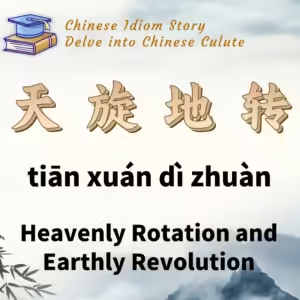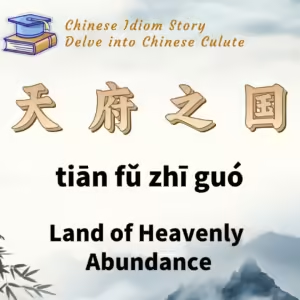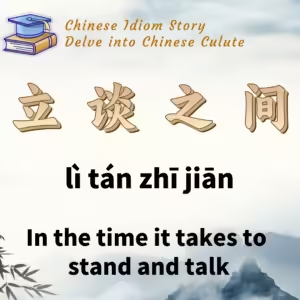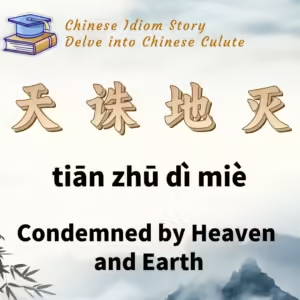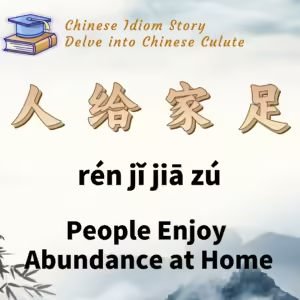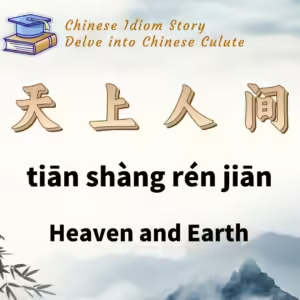
Chinese Idiom: 天上人间 (Tian Shang Ren Jian)
English Translations: Heaven on Earth
pīn yīn: tiān shàng rén jiān
Idiom Meaning: This idiom is used to describe a stark contrast between two situations or realms—one heavenly and ideal, the other earthly and real. It can also reflect a significant difference in circumstances or lifestyles.
Historical Source: The Song of the River and the Sands (《浪淘沙》) by Li Yu of the Southern Tang Dynasty
Idiom Story:
Li Yu, the last ruler of the Southern Tang Dynasty, was known for his poetic talent but was also infamous for his neglect of state affairs. During a crucial moment in 975 AD, as the Song Dynasty forces attacked the capital of Jinling (modern-day Nanjing), Li Yu was preoccupied with revelry, hosting a party and enjoying music in the palace. Despite the imminent threat, he remained oblivious to the dire situation until the very end.
On the night of November 27, 975, as the Song army was breaching the city gates, Li Yu was still in high spirits, entertaining guests. When the palace musicians, distressed by the imminent danger, played mournful tunes, Li Yu was moved to compose a poem titled The Song of the River and the Sands:
“Outside the curtain, the rain is falling steadily, and the spring seems to be waning. The silk quilt cannot withstand the chill of the fifth watch. In dreams, I forget that I am a guest, and momentarily revel in past pleasures. Alone, I should not lean on the railing; the boundless rivers and mountains are easy to part with but hard to see again. The flowing water and fallen flowers mark the departure of spring; heaven and earth are worlds apart.”
In this poem, Li Yu contrasts the luxurious life he once knew with his current state of captivity. He reflects on how his past existence, which felt so perfect, is now as distant as heaven compared to his present reality. This stark difference inspired the idiom “天上人间” (tiān shàng rén jiān), highlighting the immense gap between an idealized past and a harsh present reality.

